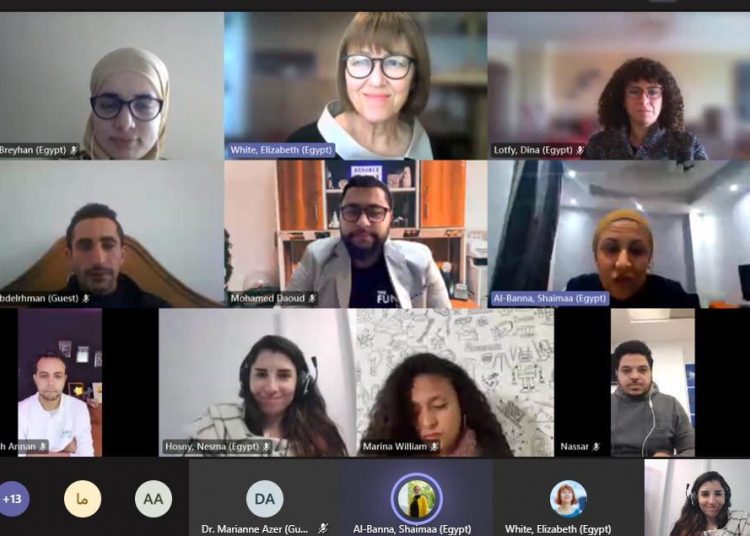By Hamed Mahmoud
The British Council in Egypt virtually hosted its very first ‘FameLab’ media roundtable event.
Taking ‘FameLab’ by example as the biggest science communication competition, the British Council connected FameLab alumnus and this year’s FameLab finalists with journalists – creating a conversation around science to keep non-scientific people connected to the environment they live in, aware of the science communications impact on our day to day decisions and our well-being.
Among the speakers, there were five ‘FameLab’ Alumni. Doctor Marianne Azer, member of Egyptian Parliament, Aduallah Anan, founder of Shar’e el-Oloum YouTube channel, Mohamed Soliman, Science Communications Officer at the AUC, Tarek AbdelGhany, Newton Mosharafa scholar, Teacher Assistant and PhD student at New Castle university in the UK and Marina Gerges, Quality control analyst and founder of ‘Kidzstein’ team to communicate science for kids in under privileged communities.
Since 2007, the British Council has partnered with the Cheltenham Science Festival in managing the science communications competition ‘FameLab’, strongly positioning itself as cultural organisation fostering science communication in Egypt and around the world.
And now, we are in 2021 where science communications’ importance is acknowledged by the whole world and science communicators are positioned to make sure that messages like the Pandemic and Climate change come across non-scientific people.
Scientists contribute to the development of society, and science communication has the opportunity to increase funding to research in many areas.
Tarek AbdelGhany, unequivocally utilised his science communications skills at its best and succeeded in securing a PhD research funding from Newton-Mosharafa programme. And now, Tarek is filling the position of teaching assistant at New Castle university in the UK and completing his PhD study.
In every country, three pillars are of paramount importance ‘science, research, and innovation’ they represent significant drivers of attractiveness for the country in the eyes of people overseas and can reposition countries as well.
Doctor Marianne Azer, Member of the Egyptian parliament, uses her science communications skills to promote dialogue and openness between scientific and non-scientific people.
Accentuating the importance of increasing public engagement into different areas to include political engagement.
As science is always catered to people who are already interested in the subject, Abduallah Anan – using effective science communications skills – is presenting science through people via actual people that audience can relay to.
Abduallah used a common figure of rhetoric and created for himself a new space in the edutainment field, opening opportunities for other young Egyptians with science communications skills to increase their employability.
Crowding out of other regular jobs, Mohamed Soliman shaped a new role around science communications. After he excelled in the skill back during ‘FameLab’ competition, Mohamed was nominated to be the first holder of a Science Communications officer job at the American University in Cairo.
He is working on several projects to break the wall between science and society.
Marina Gerges figured out that the interests of the child are of paramount importance. She founded ‘Kidzstein team’ that can extend reach of science communication to include more non-scientific people in the conversation.
Knowing that many children don’t search actively about science, Marina felt that she can utilize her science communications skills and open a dialogue with the little future scientists.
“FameLab brings universities a framework for broader skills development for their researchers, recognising the importance and value of public engagement with an international perspective. It supports internationalisation at home and helps to increase public trust in science,” said Elizabeth White, Director British Council Egypt
“I read that the origin of the word science is latin and means knowledge, we can build on how by definition and people’s perception it forms also trust and credibility,” she added.
“And in today’s scene of misinformation and ambiguity, we aim to continue our commitment in fostering science communications through digital transformation, policy making, have our contribution to topics like the pandemic and climate change – being top science projects of the decade,” said White.






Discussion about this post